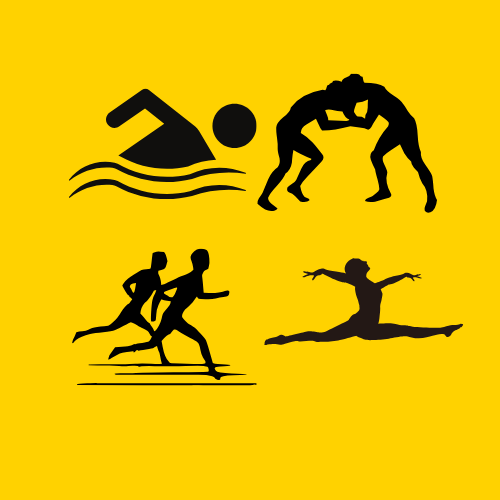
Breaking Records: Jaden Blackwell and the Future of Adaptive Sports
The world of adaptive sports is one filled with inspiring stories, showcasing the tenacity and resilience of athletes pushing the boundaries of what’s possible. This was once again on display at the Men's 100m final for Sport Class T38 at the 2025 Toyota USATF Para Nationals, held at the iconic Hayward Field. This historic venue resonated with cheers as competitors took their marks, each embodying the spirit of determination and excellence in the face of adversity.
In 'Men's 100m Final, Sport Class T38 at the 2025 Toyota USATF Para Nationals,' the event showcases incredible stories of determination in adaptive sports and inspires deeper analysis on its future.
How Did They Get Here? Unique Pathways to Paralympic Athletics
The journey to becoming a Paralympian can take many forms, as illustrated by Ryan Madrono. His entrance into adaptive sports sprang from an unconventional source—his appearance on the reality show Survivor. Learning about adaptive sports through connections made while competing on television adds a distinctive layer to his story, demonstrating how diverse experiences can bring athletes to their disciplines.
Ryan's journey reflects the importance of community and connections in adaptive sports. Meeting athletes who share their stories can significantly impact new competitors. As Madrono trains for future competitions, including the 2024 World Championships in Coobe, his interactions with seasoned athletes like Jaden Blackwell and Noel Lambert underscore the supportive ecosystem within the adaptive sports community.
The Race: A Display of Speed and Strategy
As the runners lined up, anticipation filled the air. From the start, it was evident that the race would be intense, with the competitors not only racing against one another but also against the clock. Jaden Blackwell, the standout athlete of the day, executed a remarkable race, finishing with an unofficial time of 10.65 seconds—just a heartbeat away from the world record of 10.64 seconds.
Knowing how to strategically pace oneself throughout the race was paramount, and Blackwell’s training was evident as he expertly managed the drive phase to take the lead. His performance echoed his success in Paris, where he clinched double silver medals in both the 100m and 400m. The race served as a reminder of the incredible capabilities of these athletes and their unwavering resolve to improve and break barriers.
Future Trends in Adaptive Sports
Looking ahead, the trajectory of adaptive sports suggests burgeoning opportunities for athletes like Jaden Blackwell and Ryan Madrono. With the growing awareness and enthusiasm surrounding the Paralympic Games, one can predict that participation will continue to rise. This increase not only promotes inclusivity in sports but also enhances media coverage and sponsorship opportunities, vital for sustaining talent development.
Such trends highlight the importance of investing in coaching and resources tailored to adaptive sports. Supporting upcoming athletes with training, nutrition, and psychological management is essential for fostering a new generation of competitors ready for major championships.
Strength in Community: The Role of Coaches and Support Systems
Coaches play a crucial role—a fact that cannot be overstated in discussions surrounding athlete development. Understanding the unique needs and potential of athletes in adaptive sports requires specialized training and sensitivity. Coaches who are well-versed in adaptive methodologies can provide the guidance needed to navigate the demands of competition successfully.
Moreover, the sense of community amongst adaptive athletes creates an environment where individuals can thrive. Athletes often bond through shared experiences, encouraging one another as they train and compete. This support system, reinforced by coaches and peers alike, fosters personal growth and competitive spirit, essential in the world of high-stakes racing.
Empowering the Next Generation of Athletes
The stories of athletes like Jaden Blackwell and Ryan Madrono are just beginnings, emblematic of the broader narrative in adaptive sports. Understanding their journeys and the challenges they face not only inspires current participants but also encourages the next wave of athletes to pursue their dreams—no matter the obstacles. With organizations, coaches, and communities rallying behind them, the future looks bright for adaptive sports.
In conclusion, the recent events at Hayward Field not only highlight the remarkable achievements of athletes but also teach us valuable lessons about resilience, community, and the power of sport to change lives. If you are inspired by the triumph of these athletes, consider getting involved in adaptive sports. Whether as a coach, volunteer, or advocate, there are numerous ways to support this vibrant community and help elevate future generations of athletes. Let's keep the momentum going and foster an inclusive sporting environment for all!
 Add Row
Add Row  Add
Add 




Write A Comment